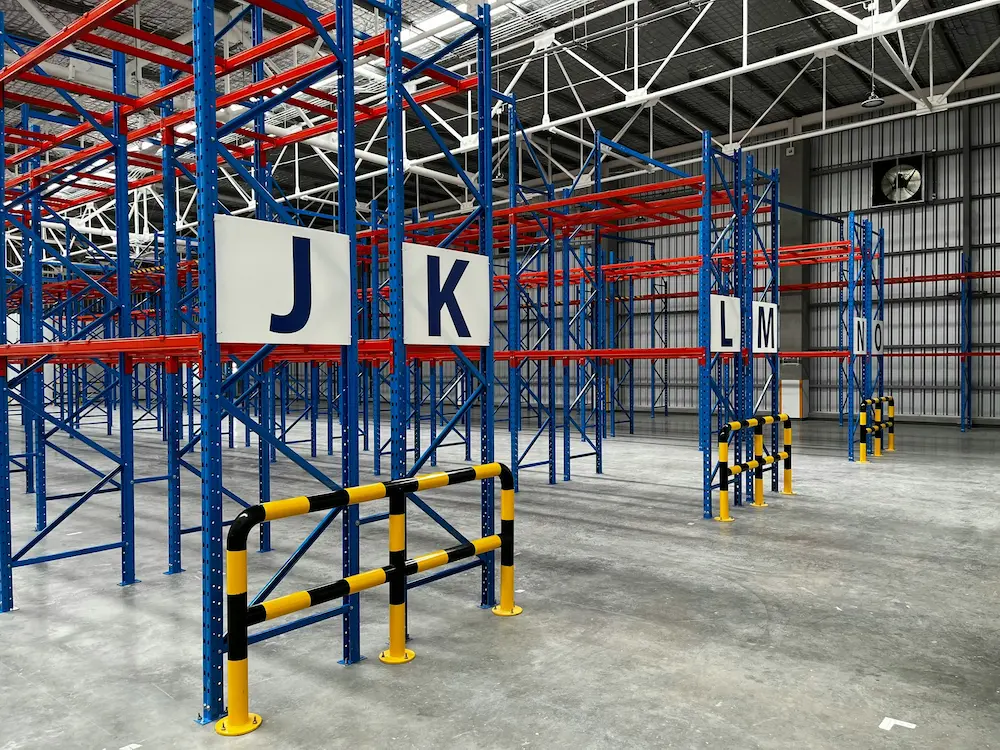In the fast-paced world of business, efficiency, and organization are pivotal for success. Storage units present a versatile solution, helping businesses manage their space more effectively. Whether it’s for document archiving, inventory control, or equipment storage, these units offer a secure and accessible way to keep assets organized. This article explores seven key ways in which storage units can transform your business’s approach to space management, promoting not only a more organized workspace but also enabling smoother operations and potential cost savings.
1. Self-Storage for Flexibility and Scalability
Self-storage units stand out as a particularly flexible and scalable option for businesses looking to manage their space efficiently. Unlike fixed storage solutions that limit growth or adaptation, self-storages have a variety of unit sizes and lease terms that can easily be adjusted to meet changing business needs. This adaptability is crucial for businesses in fluctuating markets or those experiencing rapid growth, ensuring they have access to additional space when needed without the commitment of long-term leases or the expense of moving to larger premises.
2. Cost-Effective Inventory Management
Storage units can significantly reduce the cost associated with managing business inventory. By utilizing off-site storage, businesses can avoid overcrowding their primary locations, leading to a more organized and efficient workspace that can improve operations and employee productivity. The benefits of using storage units for inventory management include:
- Lower overhead costs by not having to invest in larger on-site storage facilities or additional real estate
- Improved inventory tracking and management due to dedicated storage spaces
- Enhanced security for valuable or sensitive items, reducing the risk of loss or damage
This strategic approach to inventory management not only streamlines operations but also contributes to better financial health for the business.
3. Secure Document Archiving
For many businesses, secure document storage is not just a requirement, but a cornerstone of their operational strategy. In a world where data protection and privacy regulations are becoming increasingly stringent, the need for a safe and controlled environment for archiving essential documents has never been more crucial. Storage units offer a comprehensive solution, ensuring that crucial records like financial statements, contracts, and employee files are not just stored but safeguarded against potential risks. Equipped with advanced features like climate control to prevent environmental damage and enhanced security measures to deter unauthorized access, these facilities provide a fortress of protection for sensitive information. By entrusting their document archiving to such specialized units, businesses not only meet legal compliance standards for document retention but also proactively shield themselves against the looming threat of data breaches. This proactive approach not only fosters a culture of trust and integrity within the organization but also demonstrates a commitment to excellence in data management and security practices.
4. Seasonal Storage Solutions
Storage units offer a convenient and efficient solution for businesses seeking to store seasonal items that are only needed during specific times of the year. These items can range from festive holiday decorations to seasonal inventory and even outdoor equipment. By leveraging seasonal storage options, businesses not only create more room in their primary location but also effectively minimize clutter and uphold a sense of organization. This strategic and forward-thinking approach to seasonal storage equips businesses with the flexibility to adjust their physical workspace to meet operational demands without the necessity of investing in costly additional square footage. Embracing this method can enhance operational efficiency and streamline business processes while optimizing space management practices.
5. Equipment and Tool Storage
Businesses that rely on specific tools or equipment, such as construction companies, event organizers, or industries utilizing bulky or specialized equipment intermittently, can reap significant benefits by employing storage units strategically. This strategic utilization is particularly advantageous as it provides a secure space for storing these items during idle periods, effectively minimizing wear and tear, and prolonging their usability. Moreover, the consolidation of equipment storage facilitates streamlined inventory management processes and reduces the time spent searching for essential items, thereby optimizing overall operational efficiency. By centralizing the storage of equipment in dedicated units, businesses can enhance organization, ensure the safety of valuable tools, and create a more efficient workflow. This approach not only safeguards equipment but also contributes to cost savings in the long run by preserving the quality and functionality of assets.
6. E-Commerce Support
E-commerce businesses, especially those running from constrained spaces like home offices, have a strategic opportunity to enhance inventory management by utilizing storage units. These units serve as off-site warehouses, offering a budget-friendly substitute to traditional commercial warehousing options. This setup not only aids in optimizing stock arrangement but also smooths out packaging and shipping procedures. Furthermore, it allows for adaptable adjustments in inventory levels to align with seasonal demand fluctuations. This comprehensive approach not only boosts customer satisfaction by refining order processing efficiency and delivery timelines but also ensures a seamless and agile operational model for sustainable growth in the competitive e-commerce landscape.
7. Disaster Recovery
Storage units play a crucial role in disaster recovery planning for businesses. By securely storing duplicates of vital documents, backup data, and essential emergency supplies off-site, companies can establish a robust foundation to maintain operational functionality in the aftermath of a disaster. This proactive storage strategy not only safeguards critical assets but also effectively reduces downtime, thereby significantly enhancing business continuity and resilience in the face of unforeseen challenges. The ability to quickly access stored resources can make a substantial difference in the recovery process, ensuring that businesses can swiftly resume normal operations and mitigate potential disruptions.

The strategic use of storage units emerges as a multifaceted solution that not only enhances business space management but also contributes significantly to operational efficiency, cost savings, and overall business resilience. From offering scalable storage solutions to supporting e-commerce ventures and ensuring disaster recovery preparedness, the benefits of integrating storage units into business operations are vast and diverse. Businesses of all sizes and from various sectors can leverage these advantages to streamline their operations, safeguard valuable assets, and maintain a competitive edge in their respective industries. By recognizing and utilizing storage units as a critical component of their operational strategy, businesses can adapt more seamlessly to market demands, safeguard against unforeseen challenges, and pave the way for sustainable growth and success.








